 Your new post is loading...
 Your new post is loading...
That story in your head? It’s invented. It has to be. It might be based on some things that actually happened. The story we tell ourselves might be a useful predictor now and then. The story …
Peace might not mean getting everyone else to do what you want them to do. Instead, it might involve understanding that people don’t always want what we want and don’t often believe wha…
“How was your day?” It’s tempting to answer with just one word. “Fine.” The same way we try to lump a job, a project or a person into a single emotion. As if thereR…
What if today, just for today, we didn’t settle? What if we saw precisely the change we sought to make and sacrificed to make that change? What if we set aside urgencies and focused simply on…
I’ve heard from people who have theorized that Tesla’s window-breaking launch of the super-brutal pickup truck was either an intentional fail (look at all the publicity they got!) or a …
It’s all happening at once, and we have to choose. What to read, listen to, answer? A spam from a scammer An @ mention on Slack A voice mail from the boss An email from a customer A DM on Sla…
Perfect is the enemy of good. Of course it is. But that simple sentence becomes more urgent when we realize that nothing (and no one) is perfect. How could it be? And so, if your hero, your cause, …
A friend reached out because she’s thinking of using Kickstarter to fund her new book. That conversation led to a discussion about what Kickstarter is actually good at and how to use it. It t…
Are today’s 50 richest billionaires happier than the 50 richest people who lived twenty years ago? It’s unlikely. And yet they control many times as much wealth. If you take a date to t…
School trains people to work as maintainers. “The sculptures are all here in the gallery, make sure they are still here at the end of the shift… The floor is clean when you start, make …
Four years at MIT cost about $250,000 all in. Or, you could engage in more than 2,000 of their courses on their site, for free. What’s the difference? When you do education, you pay tuition, …
AI can now easily (8 seconds) change the identity of someone in a film or video. Multiple services can now scan a few hours of someone’s voice and then fake any sentence in that person’…
A generation ago, there was a real worry: privileged parents, those with time, education and money, were giving their kids access to the tools of the net while other kids were missing out on the we…
|
They’re not very good at hiding. If you see an elephant in the room, it’s possible that other people do too. The best way to get it to leave is to simply mention that it’s there.
As soon as competitive people start to measure something, there’s pressure to make it better. And once better reaches the maximum level, it’s optimal. But perhaps that’s not reall…
Many of the ones I know are terrible listeners. They don’t actively engage, don’t see the people who are right in front of them, and don’t exercise much in the way of curiosity or…
The math is compelling. You’re going to lose most of the competitions you enter. How could it be any other way? With a hundred or a thousand or a billion people completing, only one wins. Whi…
When someone tells you what you need to hear, instead of what you’re hoping to hear, you’ve found something priceless. This takes care, generosity and guts to achieve. When you offer th…
The flawed theory is that A+ students become good leaders. There’s no reason to think that this should be true. Doing well on tests, paying attention to what’s being asked, being dilige…
It’s my favorite holiday for a good reason: It doesn’t matter what country, what culture or what background you come from… Gratitude works. Gratitude scales. Gratitude creates a p…
In 1805, if you listened to music, you heard it live. Every time. Today, perhaps 1% of all the music we hear is live, if that. In 1805, if you listened to a lecture for school or work, you heard it…
Writer Seth Godin explains why it’s absolutely fine if you steal his ideas … you have to promise to make them better.
Tell a story that is about the listener, not about you. Tell a story that is worth sharing. Tell a story that’s unforgettable. And tell a story that makes things better. Storytelling is a ski…
If you want to change the mind of a scientist, do more science. Do better science. Get your hands on the data set and prove your assertions. If you want to change the mind of a bureaucrat, bring mo…
Leaders create the conditions where people choose new actions. The choices are voluntary. They’re made by people who see a new landscape, new opportunities and new options. You can’t ma…
|
 Your new post is loading...
Your new post is loading...
 Your new post is loading...
Your new post is loading...




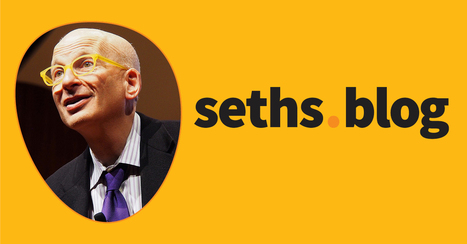


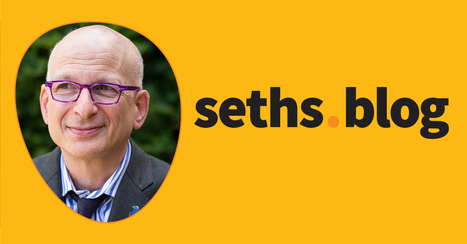
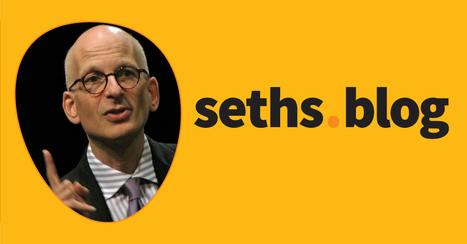
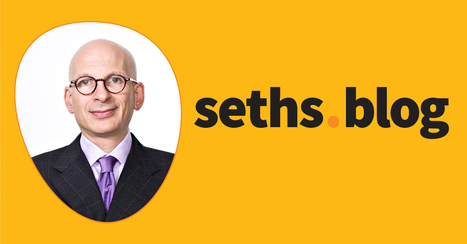
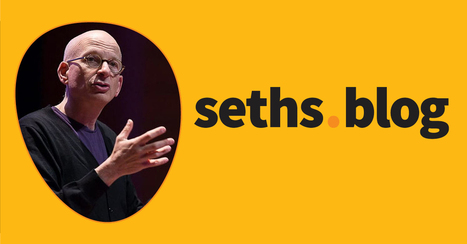


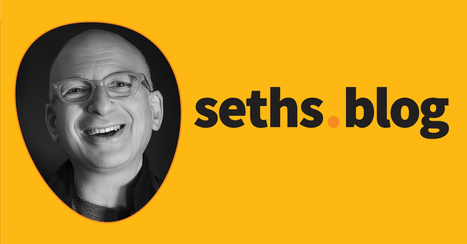
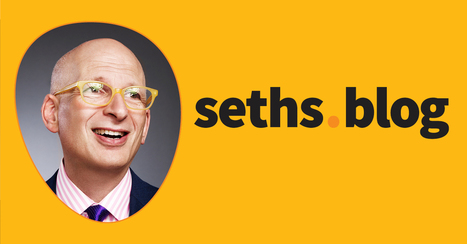
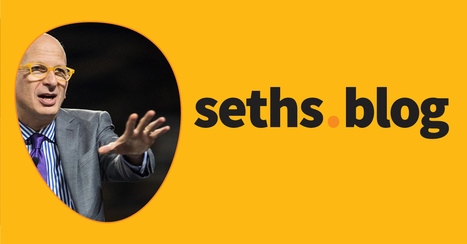

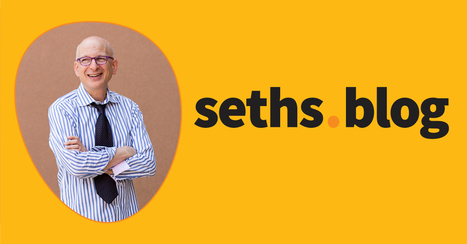





"That story in your head? It’s invented.
It has to be.
It might be based on some things that actually happened. The story we tell ourselves might be a useful predictor now and then. The story might even have been put there against our wishes, over time.
But it can’t possibly be a complete and detailed understanding of everything. That’s why it’s a narrative. It’s a shorthand, a map–not the territory. It’s filled with shortcuts and mindreading, a personal myth about you and your role in the world.
If we find our story isn’t helping us, if it’s inaccurate or distracting or enervating, we can work to change it."